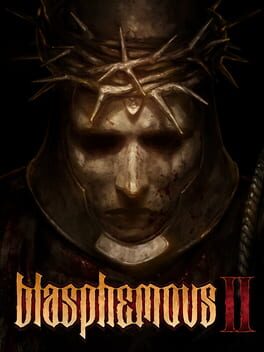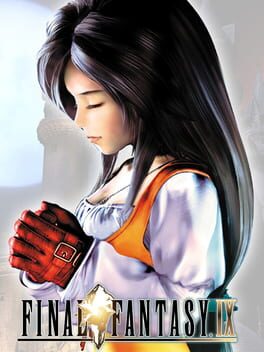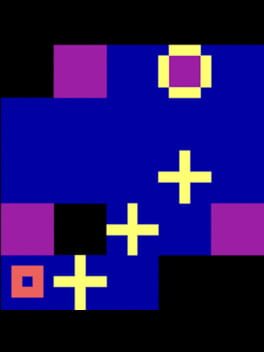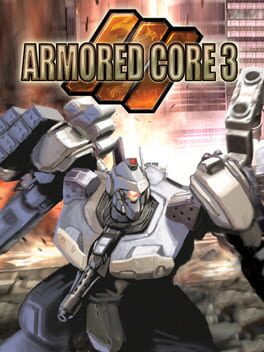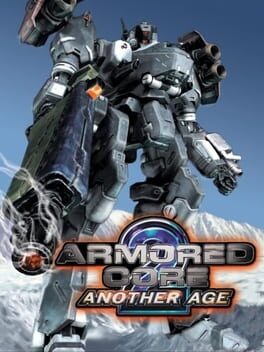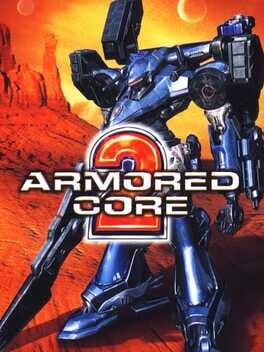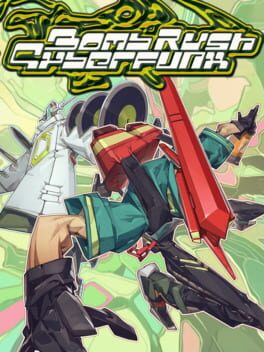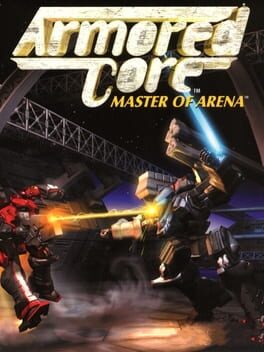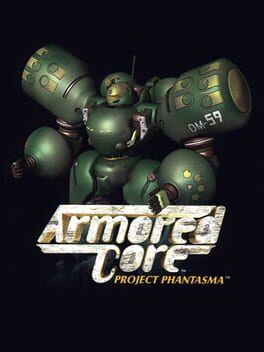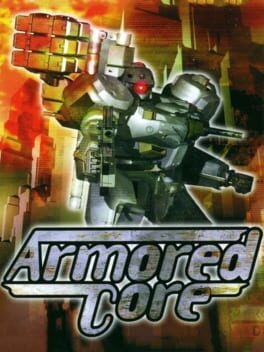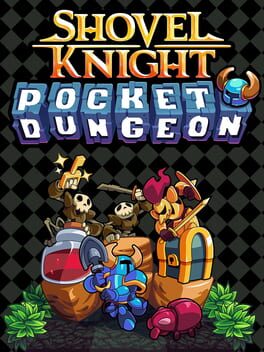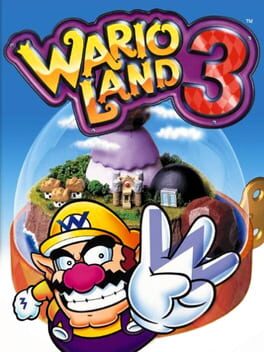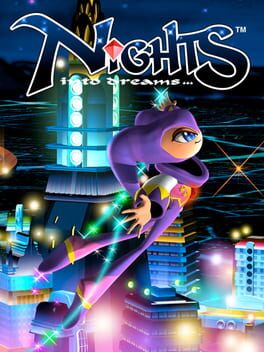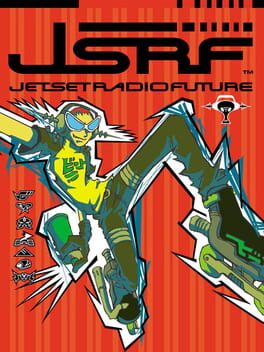HeyItMeBen
2023
I love Blasphemous, but it occupies a weird space where I can't point to many aspects of the game that I specifically adore. It's a finely crafted experience that is far better than the sum of its parts, so to say I was excited to see what they had in store for the sequel would be an understatement. And yet, as much as I enjoyed Blasphemous II, there were aspects of the experience that just didn't sit quite right with me.
The first thing you'll notice is the quality of the cutscenes. They're certainly not bad here, but the ones in the original were beautiful. I figured they'd cut costs on the cutscenes as there would be many more this time around, likely with a stronger focus on narrative. And yet, this wasn't the case. The story as a whole was even more confusing than its predecessor, leaving me with little interest in what was happening in the plot. I probably missed things, but I had no idea who anyone I was fighting actually WAS during the latter half of the game. These were just entities I had to kill, and while the first game wasn't exactly great in this regard, I feel as if it towed that line much better.
While the aesthetics and music differ very little from Blasphemous (which means they're still excellent), there are some huge departures in how the game plays. For starters, you have three different weapons to choose in the beginning, the other two heing unlocked later. Each one has a distinct feel and found their niche at one point or another. The additional mechanics are generally fun to manage and switching on the fly, for both combat and platforming, was incredibly smooth. Each one has a secondary 'field' effect too, acting as powerups that open up the world little by little. This made the start of the game consistently exhilarating, as your suite of tools is increasing at a rapid pace. This has an unfortunate knock on effect with latter half, which feels largely stagnant and lacking in identity. You get generic Metroidvania abilities such as a double jump and air dash which, while game-changing, are a tad derivative. The final upgrade comes along far too soon and adds very little, being a context-sensitive action that changes nothing about your core moveset.
Everything here works, but the pacing is so strange. You barrel through the game, partially due to how close important events are and how much easier the game is than its predecessor. While that game wasn't exactly brutal, Blasphemous II was a breeze in comparison. Bosses were inventive but since many attacks posed little threat, I didn't feel as if the more unique designs were able to shine.
On top of everything above, there were tons of little things that bugged me. The one example I like to use is how you often end up inside enemies after parrying their attacks, meaning you take damage after the riposte. It'd a mild annoyance, but on top of the many (admittedly tiny) bugs I ran into also, it demonstrated to me a lack of polish. I'm aware the original didn't launch in an entirely favourable state either, but I played after all the updates and had very few issues. Overall, I did really enjoy my time in Blasphemous II, but it lacks much of an identity that will no doubt make it an experience I'm unlikely to look back on often.
The first thing you'll notice is the quality of the cutscenes. They're certainly not bad here, but the ones in the original were beautiful. I figured they'd cut costs on the cutscenes as there would be many more this time around, likely with a stronger focus on narrative. And yet, this wasn't the case. The story as a whole was even more confusing than its predecessor, leaving me with little interest in what was happening in the plot. I probably missed things, but I had no idea who anyone I was fighting actually WAS during the latter half of the game. These were just entities I had to kill, and while the first game wasn't exactly great in this regard, I feel as if it towed that line much better.
While the aesthetics and music differ very little from Blasphemous (which means they're still excellent), there are some huge departures in how the game plays. For starters, you have three different weapons to choose in the beginning, the other two heing unlocked later. Each one has a distinct feel and found their niche at one point or another. The additional mechanics are generally fun to manage and switching on the fly, for both combat and platforming, was incredibly smooth. Each one has a secondary 'field' effect too, acting as powerups that open up the world little by little. This made the start of the game consistently exhilarating, as your suite of tools is increasing at a rapid pace. This has an unfortunate knock on effect with latter half, which feels largely stagnant and lacking in identity. You get generic Metroidvania abilities such as a double jump and air dash which, while game-changing, are a tad derivative. The final upgrade comes along far too soon and adds very little, being a context-sensitive action that changes nothing about your core moveset.
Everything here works, but the pacing is so strange. You barrel through the game, partially due to how close important events are and how much easier the game is than its predecessor. While that game wasn't exactly brutal, Blasphemous II was a breeze in comparison. Bosses were inventive but since many attacks posed little threat, I didn't feel as if the more unique designs were able to shine.
On top of everything above, there were tons of little things that bugged me. The one example I like to use is how you often end up inside enemies after parrying their attacks, meaning you take damage after the riposte. It'd a mild annoyance, but on top of the many (admittedly tiny) bugs I ran into also, it demonstrated to me a lack of polish. I'm aware the original didn't launch in an entirely favourable state either, but I played after all the updates and had very few issues. Overall, I did really enjoy my time in Blasphemous II, but it lacks much of an identity that will no doubt make it an experience I'm unlikely to look back on often.
2016
I can't deny that this game might have had less of an impact on me at different points in my life, but we're not at those points. Final Fantasy IX made me smile ear to ear and bawl ceaselessly both at the same time, not totally happy but not quite sad either.
I won't delve too deep into the story; I want to make a video about this game one day, about its characters, about its themes. The way the game juggles with identity particularly resonated with me and my current circumstances. There was nary a poor character in the bunch, though Amarant certainly didn't pull his weight the same way the others did. I feel as if he should have entered the story earlier, probably around the card tournament, and been a recurring antagonistic force so we could better understand his switch to the heroes' team. Freya, too, needed a little more to do in the late game. Her arc is important when you meet her and then basically irrelevant until the very end. I say this because she's fucking cool, an incredible design on top of being a total badass made her one of my favourites regardless of overall importance. No complaints with the other 6, even Quina was solid and served their purpose well as someone who was just their to enjoy good food.
Final Fantasy IX is quite possibly the most beautiful game I've ever played. I often had to stop and admire the densely crafted environments, of which there are an outstanding amount. Soaking these in with the often ethereal soundtrack was a pleasure which never let up. The areas only grew more fantastical, consistently stunning me with vistas I could not picture being realised as well outside of these pre-rendered dioramas. Each level is fully realised both aesthetically and in terms of gameplay. While these aren't exactly as complex as zelda dungeons, there's a satisfying level of interactivity that turns the world itself into its own character. It's a complete vision of a fantasy setting, one that isn't held back by its roots, but embraces and twists them into something totally unique.
This game doesn't excel in its combat, but in the supplmentary aspects of gameplay. You're rarely stuck with the same party for too long, the first disc doing an especially great job of shuffling everyone around in a way that keeps the basic low level combat interesting while also servicing the story and world. Seeing things from multiple perspectives really lends to how vast everything feels. This is aided by the Active Time Events, which are optional vignettes which let you see what other characters are up to during certain parts of the story. Sometimes they're vital to the plot, but more often than not they just add flavour to the characters through charming interactions. It got me wondering why most RPGs don't have a system like this as it adds so much for comparatively little work.
There's a lot to do on Gaia besides fighting enemies. You can play a card game (which is fun only for the collector aspect), mess around with Chocobos (which is one of the most involved quests in the game) or take on requests from various folk across the world. I must drill in on how full this makes the game feel, with so much effort and heart put into pieces of content that only a small percentage of players will see. Most of the time, rewards relate to equipment which make the characters stronger and while battles were rarely anything special, building everyone up was deeply engaging. The ultimate abilities you could earn were absolutely busted, but made the effort I put into getting them all the more worth it.
And yet, I've left so much unsaid. I can (and plan to!) talk about this game for hours, but much like the game itself, it's best not to get bogged down in the details. Some things are left unclear in the ending, others are barely expanded on, but the feelings it conveys are so enormous that I couldn't possibly be left wanting more. It's rare that I've been left so overwhelmed by the end of a game.
I won't delve too deep into the story; I want to make a video about this game one day, about its characters, about its themes. The way the game juggles with identity particularly resonated with me and my current circumstances. There was nary a poor character in the bunch, though Amarant certainly didn't pull his weight the same way the others did. I feel as if he should have entered the story earlier, probably around the card tournament, and been a recurring antagonistic force so we could better understand his switch to the heroes' team. Freya, too, needed a little more to do in the late game. Her arc is important when you meet her and then basically irrelevant until the very end. I say this because she's fucking cool, an incredible design on top of being a total badass made her one of my favourites regardless of overall importance. No complaints with the other 6, even Quina was solid and served their purpose well as someone who was just their to enjoy good food.
Final Fantasy IX is quite possibly the most beautiful game I've ever played. I often had to stop and admire the densely crafted environments, of which there are an outstanding amount. Soaking these in with the often ethereal soundtrack was a pleasure which never let up. The areas only grew more fantastical, consistently stunning me with vistas I could not picture being realised as well outside of these pre-rendered dioramas. Each level is fully realised both aesthetically and in terms of gameplay. While these aren't exactly as complex as zelda dungeons, there's a satisfying level of interactivity that turns the world itself into its own character. It's a complete vision of a fantasy setting, one that isn't held back by its roots, but embraces and twists them into something totally unique.
This game doesn't excel in its combat, but in the supplmentary aspects of gameplay. You're rarely stuck with the same party for too long, the first disc doing an especially great job of shuffling everyone around in a way that keeps the basic low level combat interesting while also servicing the story and world. Seeing things from multiple perspectives really lends to how vast everything feels. This is aided by the Active Time Events, which are optional vignettes which let you see what other characters are up to during certain parts of the story. Sometimes they're vital to the plot, but more often than not they just add flavour to the characters through charming interactions. It got me wondering why most RPGs don't have a system like this as it adds so much for comparatively little work.
There's a lot to do on Gaia besides fighting enemies. You can play a card game (which is fun only for the collector aspect), mess around with Chocobos (which is one of the most involved quests in the game) or take on requests from various folk across the world. I must drill in on how full this makes the game feel, with so much effort and heart put into pieces of content that only a small percentage of players will see. Most of the time, rewards relate to equipment which make the characters stronger and while battles were rarely anything special, building everyone up was deeply engaging. The ultimate abilities you could earn were absolutely busted, but made the effort I put into getting them all the more worth it.
And yet, I've left so much unsaid. I can (and plan to!) talk about this game for hours, but much like the game itself, it's best not to get bogged down in the details. Some things are left unclear in the ending, others are barely expanded on, but the feelings it conveys are so enormous that I couldn't possibly be left wanting more. It's rare that I've been left so overwhelmed by the end of a game.
It's alright. Puzzles often seem complex at first glance, but once you think about them for a few seconds, the solutions become incredibly obvious. A lot of it is just tracing steps from where you need to be and eliminating solutions which cannot be correct. There's an attempt at a story here, which is fine, but I don't think this game will ever invade my thoughts again.
2002
Finally, an Armored Core game I truly love. It has its flaws just like the rest of them, but has the best balance of mission design, story and music to date.
Armored Core 3 is a little more direct with its story from the get go. The world is explained to you, a society built in layers ruled over by a force known as "The Controller". It's simple sci-fi guff, giving me big Psycho Pass vibes, but more effectively established a core threat. Obviously, the idea of a supercomputer making every single decision is rather dystopian, and the game grapples heavily with themes of control and oppression. It won't win any awards, yet I was hooked throughout, and once again found myself building rapport with different companies based on how they responded to current events. It's AC storytelling at its best!
Missions are about as good as they've ever been, too. Plenty "kill all enemies" objectives, with a smattering of escorts, defences and more unique goals, such as surviving a firing range without shooting back or my favourite level, a vertical dive into a sunken cargo ship where you balance how much you can destroy with both a time limit and limited ammunition. Once you get to the bottom, you're put against the clock and have to scale your way back and with the game's electrifying soundtrack, it makes for an incredibly intense setpiece.
AC3 does fall into the trap of previous titles where the final stretch of the game can just be a tad too brutal. Everything kills you in seconds and requires an accurate onslaught from yourself in order to stand a chance. It's just a touch frustrating, but otherwise this game excels in its mission design.
Just a fantastic entry in a series I'm truly growing to adore. I've got a lot more Gen 3 ahead so I'm happy to see it's off to a great start.
Armored Core 3 is a little more direct with its story from the get go. The world is explained to you, a society built in layers ruled over by a force known as "The Controller". It's simple sci-fi guff, giving me big Psycho Pass vibes, but more effectively established a core threat. Obviously, the idea of a supercomputer making every single decision is rather dystopian, and the game grapples heavily with themes of control and oppression. It won't win any awards, yet I was hooked throughout, and once again found myself building rapport with different companies based on how they responded to current events. It's AC storytelling at its best!
Missions are about as good as they've ever been, too. Plenty "kill all enemies" objectives, with a smattering of escorts, defences and more unique goals, such as surviving a firing range without shooting back or my favourite level, a vertical dive into a sunken cargo ship where you balance how much you can destroy with both a time limit and limited ammunition. Once you get to the bottom, you're put against the clock and have to scale your way back and with the game's electrifying soundtrack, it makes for an incredibly intense setpiece.
AC3 does fall into the trap of previous titles where the final stretch of the game can just be a tad too brutal. Everything kills you in seconds and requires an accurate onslaught from yourself in order to stand a chance. It's just a touch frustrating, but otherwise this game excels in its mission design.
Just a fantastic entry in a series I'm truly growing to adore. I've got a lot more Gen 3 ahead so I'm happy to see it's off to a great start.
2019
How does one review Baba is You? This is a game about rules that constantly sees you breaking them in order to progress. Well, you're not actually defying the rules, but the game intends to make it seem you are.
I'm still playing Baba is You. I've gotten the basic ending but there's more to see, and I've only made a small dent in New Adventures, the game's additional level pack. There's a peculiar atmosphere here, each song establishes a new, weird vibe for the various worlds. The visuals are sparse, building clarity between objects and the background; the empty space serves another purpose, though. The levels are solitudinous, you're alone in this world. Even when you can take control of other characters or force them to move, it never ends up feeling any less lonely. There's beauty in this isolation and I often got lost in the ambience.
As an aside, I don't know why people bothered to continue designing characters after Baba's inception. As a species, we peaked in 2019 and it's just been downhill ever since.
Baba is You is baby's first programming game, which might imply that the game is easy. This couldn't be more wrong. While the building blocks are simple to understand and fun to play around with, the contraptions present in this game are frankly diabolical. In other games, you'd be presented with a small set of tools with basic functionality, therefrom slowly fabricating more complex interactions until you have a encyclopedic knowledge of how everything works and can string it together in clever ways. In Baba is You, it almost feels as if knowledge is a detriment. Rarely will two levels in Baba is You require a similar thought process. Each one will have you rethinking the very foundations the game is built on, asking you to jump to brand new conclusions on how to utilise its many, many idiosyncratic nouns, operators and properties. So often will a solution seem simple only for you to test it and find out it cannot work, tinkering with it over and over before realising you needed to throw out the book altogether.
This fundamental design is both Baba is You's strongest boon and greatest detriment. There's a fine line between the eureka moments and the moments where you feel like a caveman, bashing your head against every object in the level without even an inkling of how to progress. As for myself, I managed to beat the game without hints, but I've decided to continue playing using Baba is Hint, an excellent site which should keep the game more fun than infuriating. It's also worth noting that there are some brilliant surprises and subversions of your understanding, namely to do with a certain Level noun.
Baba is You is boundlessly creative. An engaging test of your ability to problem solve, specifically using out-of-the-box alternatives to pre-established norms. It's an ethereal experience that, even after bouncing off several years back, I was compelled to restart and see it through to the end. Don't be fooled by its exterior, though. Baba is You might be one of the most brutal puzzle games I've ever played, which will always make it a little too prickly to recommend to everyone.
I'm still playing Baba is You. I've gotten the basic ending but there's more to see, and I've only made a small dent in New Adventures, the game's additional level pack. There's a peculiar atmosphere here, each song establishes a new, weird vibe for the various worlds. The visuals are sparse, building clarity between objects and the background; the empty space serves another purpose, though. The levels are solitudinous, you're alone in this world. Even when you can take control of other characters or force them to move, it never ends up feeling any less lonely. There's beauty in this isolation and I often got lost in the ambience.
As an aside, I don't know why people bothered to continue designing characters after Baba's inception. As a species, we peaked in 2019 and it's just been downhill ever since.
Baba is You is baby's first programming game, which might imply that the game is easy. This couldn't be more wrong. While the building blocks are simple to understand and fun to play around with, the contraptions present in this game are frankly diabolical. In other games, you'd be presented with a small set of tools with basic functionality, therefrom slowly fabricating more complex interactions until you have a encyclopedic knowledge of how everything works and can string it together in clever ways. In Baba is You, it almost feels as if knowledge is a detriment. Rarely will two levels in Baba is You require a similar thought process. Each one will have you rethinking the very foundations the game is built on, asking you to jump to brand new conclusions on how to utilise its many, many idiosyncratic nouns, operators and properties. So often will a solution seem simple only for you to test it and find out it cannot work, tinkering with it over and over before realising you needed to throw out the book altogether.
This fundamental design is both Baba is You's strongest boon and greatest detriment. There's a fine line between the eureka moments and the moments where you feel like a caveman, bashing your head against every object in the level without even an inkling of how to progress. As for myself, I managed to beat the game without hints, but I've decided to continue playing using Baba is Hint, an excellent site which should keep the game more fun than infuriating. It's also worth noting that there are some brilliant surprises and subversions of your understanding, namely to do with a certain Level noun.
Baba is You is boundlessly creative. An engaging test of your ability to problem solve, specifically using out-of-the-box alternatives to pre-established norms. It's an ethereal experience that, even after bouncing off several years back, I was compelled to restart and see it through to the end. Don't be fooled by its exterior, though. Baba is You might be one of the most brutal puzzle games I've ever played, which will always make it a little too prickly to recommend to everyone.
I really didn't think there'd be another game was more "Armored Core DLC" than Project Phantasma, but here we are. Another Age is another helping of AC action in a package devoid of narrative beats and optional arena missions, instead stuffed to the brim with missions taking place across a wide array of areas and honestly? It works, mostly.
The biggest sacrifice that this game makes is in its story, which is largely non-existent. There's still political intrigue in mission flavour texts, but I never felt like I had a clear picture of the landscape portrayed by this entry. It's a follow up (and finale!) to every game that came before it, yet this premise isn't at all capitalised on. Thankfully, it's not distractingly scarce as the mission design is often at its best here.
You select the missions you want to do from a world map for the first time. It lends a good sense of place to everything and makes revisiting similar locales (which you do a lot) a little less disappointing. There are a lot of missions this time around, and besides the 3 post game missions, none of them are optional! This is another aspect that would have made it hard to implement a traditional narrative, as more than ever you'll be choosing between a wide array of missions to do at every junction, and there's no chance to miss any like you would in prior games.
The missions themselves are usually quite fun due to the diversity on offer. There's a ton of simple "destroy all enemies" objectives, but there are almost as many slightly more distinct ones. More giant enemies, more defences, more disarmings. There's a stealth mission, a mission where you just have to destroy an unarmed train. It's great fun... but, inevitably, it stretches itself thin. The worst example of this is the endgame, where you take on increasingly more difficult enemy ACs. It's similar to the arena from previous games, except losing means you have to boot back into the mission from the world map, sit through the loading screens and opening dialogue, then fight the enemy. It's incredibly draining, and they load all of these fights into the endgame. With the arena, it was so simple to back out try again with different builds without decimating the pace, but they learnt nothing from their successes.
Armored Core 2: Another Age is an advance in terms of variety, especially coming off the poor attempts of its direct predecessor, but it suffers from a enormous amount of bloat that places it among the lower rungs of its series. At the end of the day, though, who doesn't enjoy blasting other giant robots with their giant robot?
The biggest sacrifice that this game makes is in its story, which is largely non-existent. There's still political intrigue in mission flavour texts, but I never felt like I had a clear picture of the landscape portrayed by this entry. It's a follow up (and finale!) to every game that came before it, yet this premise isn't at all capitalised on. Thankfully, it's not distractingly scarce as the mission design is often at its best here.
You select the missions you want to do from a world map for the first time. It lends a good sense of place to everything and makes revisiting similar locales (which you do a lot) a little less disappointing. There are a lot of missions this time around, and besides the 3 post game missions, none of them are optional! This is another aspect that would have made it hard to implement a traditional narrative, as more than ever you'll be choosing between a wide array of missions to do at every junction, and there's no chance to miss any like you would in prior games.
The missions themselves are usually quite fun due to the diversity on offer. There's a ton of simple "destroy all enemies" objectives, but there are almost as many slightly more distinct ones. More giant enemies, more defences, more disarmings. There's a stealth mission, a mission where you just have to destroy an unarmed train. It's great fun... but, inevitably, it stretches itself thin. The worst example of this is the endgame, where you take on increasingly more difficult enemy ACs. It's similar to the arena from previous games, except losing means you have to boot back into the mission from the world map, sit through the loading screens and opening dialogue, then fight the enemy. It's incredibly draining, and they load all of these fights into the endgame. With the arena, it was so simple to back out try again with different builds without decimating the pace, but they learnt nothing from their successes.
Armored Core 2: Another Age is an advance in terms of variety, especially coming off the poor attempts of its direct predecessor, but it suffers from a enormous amount of bloat that places it among the lower rungs of its series. At the end of the day, though, who doesn't enjoy blasting other giant robots with their giant robot?
2000
So, the second generation of Armored Core. A more fluid experience than its predecessors with a solid story that tends to miss its mark in terms of mission objectives.
I feel as if I'm going to have less and less to say about AC sequels, but there has been a substantial jump from the PS1 here. The visuals are wonderful, at its best this game reminds me of F-Zero GX which is high praise from me. Having said this, locales often feel uninspired. Generic laboratory hallways and low visibility night areas take up a lot of the runtime and when the game does veer into more peculiar destinations, there's sometimes a catch. The snow and desert levels are particularly barren, with storms that make it difficult for you to see much. It feels unfair to say that the original AC did areas like this to intentionally build an atmosphere of desolation, but the vibes just weren't hitting the same way in this game. The soundtrack also blended into the background for me, listening back it's good but for whatever reason, it didn't have much staying power.
I was big on the customisation this time around. While I dabbled with different weapons during the prior games, I spent a majority of my time in the menus here. The arena works as a perfect testing ground for new builds and I actually ended up working my way up to rank 1. It took a while for me to find a build I was happy with; many of the best weapons just didn't have the ammunition to carry through the game's longest missions. But when I did settle on something for the final quarter or so, I was stoked!
The missions are the lowest part, though. There's very little in terms of truly unique objectives and on the whole, they feel too long. Many of these missions will drain of your most precious resources, health and stamina. While your AC controls better than ever, there's a vast number of enemies that dart around the screen, being totally impossible to pinpoint. The most annoying aspect of this is when they jump above you, as this is where your coverage is generally the most lacking. I still enjoyed the flow of gameplay for the most part, but the objectives here left a lot to be desired.
All in all, I do prefer this game to those that came before it. It's a big step up in general "feel", but the campaign needs some ironing out in order to truly shine.
I feel as if I'm going to have less and less to say about AC sequels, but there has been a substantial jump from the PS1 here. The visuals are wonderful, at its best this game reminds me of F-Zero GX which is high praise from me. Having said this, locales often feel uninspired. Generic laboratory hallways and low visibility night areas take up a lot of the runtime and when the game does veer into more peculiar destinations, there's sometimes a catch. The snow and desert levels are particularly barren, with storms that make it difficult for you to see much. It feels unfair to say that the original AC did areas like this to intentionally build an atmosphere of desolation, but the vibes just weren't hitting the same way in this game. The soundtrack also blended into the background for me, listening back it's good but for whatever reason, it didn't have much staying power.
I was big on the customisation this time around. While I dabbled with different weapons during the prior games, I spent a majority of my time in the menus here. The arena works as a perfect testing ground for new builds and I actually ended up working my way up to rank 1. It took a while for me to find a build I was happy with; many of the best weapons just didn't have the ammunition to carry through the game's longest missions. But when I did settle on something for the final quarter or so, I was stoked!
The missions are the lowest part, though. There's very little in terms of truly unique objectives and on the whole, they feel too long. Many of these missions will drain of your most precious resources, health and stamina. While your AC controls better than ever, there's a vast number of enemies that dart around the screen, being totally impossible to pinpoint. The most annoying aspect of this is when they jump above you, as this is where your coverage is generally the most lacking. I still enjoyed the flow of gameplay for the most part, but the objectives here left a lot to be desired.
All in all, I do prefer this game to those that came before it. It's a big step up in general "feel", but the campaign needs some ironing out in order to truly shine.
2023
The definition of style over substance, Bomb Rush Cyberfunk is a tour de force in vibes that trips over itself constantly. Yet, I came out holding it rather high regards despite that.
I'd like to recommend this game for its story. It starts fun, it's an over the top romp through the dystopian New Amsterdam. If you've played Jet Set Radio, this is Tokyo-to to a tee. A deeply corrupt police force uses excessive means to arrest (or even kill) jet-powered teens who establish dominance over one another using graffiti. It's nonsense, but enjoyable nonsense! BRC tries a little harder to tell a competent story and falls flat because of it. It starts off interesting, but the pacing jams the back end with twists and reveals that came off flat. There are some unique moments nonetheless (the dream sections are so cool) though I feel the whole thing could have been evened out a little more, and some eccentric voice acting may have added some weight to the flat dialogue boxes.
I don't even thing I need to talk about it, but the music is sublime. I discovered a new artist in Soia (responsible for You Can Say Hi), an old favourite 2 Mello supplied their catchy I Wanna Kno and Hideki Naganuma was firing on all cylinders with JACK DA FUNK. It's wonderfully diverse and I'd just be listing for a while if I were to name every track I loved. What's new to this game is the phone which lets you select the tracks you want playing from a l'il menu. It's a cute touch and I'm a sucker for anything diagetic.
The phone also has a map and a camera, which might be the best implementation of a camera I've seen. While your view of the world remains the same, the camera updates in real time as you run around. Every joly, every flip, everything twists and turns your physical phone which, in turn, is reflected in the camera app. When you snap it, the photos are in vertical portrait, rendering the goregous world of New Amsterdam in an authentic, youthful light.
Unfortunately, I now come to my grievances with the gameplay. It feels smooth enough; different types of tricks, a decent boost, leaning on rails is a fab innovation that adds a lot to the formula too! Yet, there's something off about it all. For starters, you just don't move fast enough. Crossing long, flat distances feels sluggish, When you're zipping around corners on rails, it feels just right, but otherwise falters. Then there's the combo system which I believe needs a complete overhaul. In theory, it's similar to the JSR games. Build up a combo by performing tricks, maintain the combo by switching rails. However, you now have another option to keep a combo moving. By mantling, combos are now possible on the ground. Combined with 'boost tricks', combos may as well be infinite. Surely there's some skill to upholding a long combo? No. You can mash buttons as much as you want and as long as you're spamming the boost jumps and finding new rails to refill your boost meter, you're not dropping them without significant flubs.
In turn, this sorta breaks all of the game's challenges. You'll often have score attacks against rival crews, but as long as you understand how the system works, you'll quickly rack up a combo that they won't be able to beat. In Jet Set Radio Future, keeping combos going was hard because tricks needed to be timed and touching the floor would end it immediately. I think there's a middle ground here, but BRC does not find it, and thus created a system that lacked resistance, making nothing rewarding. There's also combat in this game and it's somehow clunkier than the games that inspired it. You have more options but it also feels wrong. It's a little hard to explain so I'll leave it at that.
Bomb Rush Cyberfunk was a romp, but one that I glided through with little effort for the most part. The game needed something more to break up its formula, as you'll be repeating the same things for the entire runtime. The Sunshine-esque dream sequences are welcome, but also could have been fleshed out more. The graffiti system is a solid blend of the two JSR games but didn't elevate the concept much beyond that. I had a blast, but I found more joy in simply existing in this world rather than blasting around it.
I'd like to recommend this game for its story. It starts fun, it's an over the top romp through the dystopian New Amsterdam. If you've played Jet Set Radio, this is Tokyo-to to a tee. A deeply corrupt police force uses excessive means to arrest (or even kill) jet-powered teens who establish dominance over one another using graffiti. It's nonsense, but enjoyable nonsense! BRC tries a little harder to tell a competent story and falls flat because of it. It starts off interesting, but the pacing jams the back end with twists and reveals that came off flat. There are some unique moments nonetheless (the dream sections are so cool) though I feel the whole thing could have been evened out a little more, and some eccentric voice acting may have added some weight to the flat dialogue boxes.
I don't even thing I need to talk about it, but the music is sublime. I discovered a new artist in Soia (responsible for You Can Say Hi), an old favourite 2 Mello supplied their catchy I Wanna Kno and Hideki Naganuma was firing on all cylinders with JACK DA FUNK. It's wonderfully diverse and I'd just be listing for a while if I were to name every track I loved. What's new to this game is the phone which lets you select the tracks you want playing from a l'il menu. It's a cute touch and I'm a sucker for anything diagetic.
The phone also has a map and a camera, which might be the best implementation of a camera I've seen. While your view of the world remains the same, the camera updates in real time as you run around. Every joly, every flip, everything twists and turns your physical phone which, in turn, is reflected in the camera app. When you snap it, the photos are in vertical portrait, rendering the goregous world of New Amsterdam in an authentic, youthful light.
Unfortunately, I now come to my grievances with the gameplay. It feels smooth enough; different types of tricks, a decent boost, leaning on rails is a fab innovation that adds a lot to the formula too! Yet, there's something off about it all. For starters, you just don't move fast enough. Crossing long, flat distances feels sluggish, When you're zipping around corners on rails, it feels just right, but otherwise falters. Then there's the combo system which I believe needs a complete overhaul. In theory, it's similar to the JSR games. Build up a combo by performing tricks, maintain the combo by switching rails. However, you now have another option to keep a combo moving. By mantling, combos are now possible on the ground. Combined with 'boost tricks', combos may as well be infinite. Surely there's some skill to upholding a long combo? No. You can mash buttons as much as you want and as long as you're spamming the boost jumps and finding new rails to refill your boost meter, you're not dropping them without significant flubs.
In turn, this sorta breaks all of the game's challenges. You'll often have score attacks against rival crews, but as long as you understand how the system works, you'll quickly rack up a combo that they won't be able to beat. In Jet Set Radio Future, keeping combos going was hard because tricks needed to be timed and touching the floor would end it immediately. I think there's a middle ground here, but BRC does not find it, and thus created a system that lacked resistance, making nothing rewarding. There's also combat in this game and it's somehow clunkier than the games that inspired it. You have more options but it also feels wrong. It's a little hard to explain so I'll leave it at that.
Bomb Rush Cyberfunk was a romp, but one that I glided through with little effort for the most part. The game needed something more to break up its formula, as you'll be repeating the same things for the entire runtime. The Sunshine-esque dream sequences are welcome, but also could have been fleshed out more. The graffiti system is a solid blend of the two JSR games but didn't elevate the concept much beyond that. I had a blast, but I found more joy in simply existing in this world rather than blasting around it.
This review contains spoilers
Master of Arena, unlike its predecessor, justifies its existence as a "new" Armored Core game. While I'm still rather fatigued by PS1 AC as a whole, this game features the best elements of the original (including a solid story) while changing up the look of the menus and introducing enough new elements in regards to customisation and a superb soundtrack to boot.
As I mentioned in my review for Project Phantasma, I was disappointed in the shift to a more typical plot which saw you taking down an unambiguous baddie that threatened the world. In Master of Arena, you are once again a mercenary, taking on odd jobs from your handler. There's some tension here though, as you also receive requests from your sponsor, which your handler doesn't appreciate. To actually spoil things for once, I loved the fact that your handler essentially goes off the rails when they realise they can't keep you on a tight leash any longer. It's a fun look into the Ravens' Nest, an organisation with its own twisted sense of morality.
Unlike Project Phantasma, climbing the ranks of the arena is necessary here. I didn't touch disc 2, but the arena offerings of disc 1 were just... okay. These confrontations just don't hit the right spots for me, turning is incredibly sluggish so it can be impossible to pin down the faster ACs. Some weapons are utterly useless here too, so my arsenal was restricted in a way I wasn't overly fond of. While I did appreciate having to change up my strategy in order to overcome some of the tougher opponents, I still don't see the value in these encounters, at least in the PS1 engine.
Overall though, another solid entry in the series. It didn't overstay its welcome and although I'm very much ready to move onto the next generations, this was a strong send off to what came first.
As I mentioned in my review for Project Phantasma, I was disappointed in the shift to a more typical plot which saw you taking down an unambiguous baddie that threatened the world. In Master of Arena, you are once again a mercenary, taking on odd jobs from your handler. There's some tension here though, as you also receive requests from your sponsor, which your handler doesn't appreciate. To actually spoil things for once, I loved the fact that your handler essentially goes off the rails when they realise they can't keep you on a tight leash any longer. It's a fun look into the Ravens' Nest, an organisation with its own twisted sense of morality.
Unlike Project Phantasma, climbing the ranks of the arena is necessary here. I didn't touch disc 2, but the arena offerings of disc 1 were just... okay. These confrontations just don't hit the right spots for me, turning is incredibly sluggish so it can be impossible to pin down the faster ACs. Some weapons are utterly useless here too, so my arsenal was restricted in a way I wasn't overly fond of. While I did appreciate having to change up my strategy in order to overcome some of the tougher opponents, I still don't see the value in these encounters, at least in the PS1 engine.
Overall though, another solid entry in the series. It didn't overstay its welcome and although I'm very much ready to move onto the next generations, this was a strong send off to what came first.
I don't know if I needed more Armored Core 1, but this is just that! Everything good I said about that game still applies here, except for the story.
This game's story is a lot more direct. You follow a linear mission structure with little room for variance and the plot plays out in a much more standard manner. You have a companion for a majority of the runtime, there's an antagonistic rival who shows up to taunt you throughout and all in all, it was all a tad trite. There was a peculiar morality to Armored Core 1; you were a mercenary for hire, which meant being given some unsavoury jobs. I personally chose to ignore those in favour of other missions, which actually ended up skipping them entirely. It was simple but effective and I enjoyed being in that role a lot. In this, you're an action hero. There's no ambiguity, you are the good guy and while that's fine, I wasn't at all hooked.
The game's balance also feels a little off. Levels are generally longer and will whittle down your resources constantly. I'd fail a mission realising what I really needed to do was just ignore all the enemies. I just didn't like the objectives as much this time round, nothing stood out as particularly obnoxious, but in that same regard nothing was as special to me as some of the levels in the original. The final boss was a pain though, I tried for a while with the build that had decimated the rest of the game(s) only to unload all of my ammunition into that boss only for it not to end. I switched to a rocket weapon from the shop and annihilated him in 30 seconds, which came off rather limp. I know these kinds of fights are probably a staple of the series, but the core gameplay on the PS1 just doesn't really facilitate the faster pace as much as I'd like.
I enjoyed it enough. It's Armored Core at its core, but Project Phantasma doesn't bring enough new to the table to warrant its own existence. I didn't even mention the arena mode because I fought one enemy and knew I wouldn't get much out of it. Again, in a title that controls better, these 1-on-1 encounters might shine bright, but they're far too dull here.
This game's story is a lot more direct. You follow a linear mission structure with little room for variance and the plot plays out in a much more standard manner. You have a companion for a majority of the runtime, there's an antagonistic rival who shows up to taunt you throughout and all in all, it was all a tad trite. There was a peculiar morality to Armored Core 1; you were a mercenary for hire, which meant being given some unsavoury jobs. I personally chose to ignore those in favour of other missions, which actually ended up skipping them entirely. It was simple but effective and I enjoyed being in that role a lot. In this, you're an action hero. There's no ambiguity, you are the good guy and while that's fine, I wasn't at all hooked.
The game's balance also feels a little off. Levels are generally longer and will whittle down your resources constantly. I'd fail a mission realising what I really needed to do was just ignore all the enemies. I just didn't like the objectives as much this time round, nothing stood out as particularly obnoxious, but in that same regard nothing was as special to me as some of the levels in the original. The final boss was a pain though, I tried for a while with the build that had decimated the rest of the game(s) only to unload all of my ammunition into that boss only for it not to end. I switched to a rocket weapon from the shop and annihilated him in 30 seconds, which came off rather limp. I know these kinds of fights are probably a staple of the series, but the core gameplay on the PS1 just doesn't really facilitate the faster pace as much as I'd like.
I enjoyed it enough. It's Armored Core at its core, but Project Phantasma doesn't bring enough new to the table to warrant its own existence. I didn't even mention the arena mode because I fought one enemy and knew I wouldn't get much out of it. Again, in a title that controls better, these 1-on-1 encounters might shine bright, but they're far too dull here.
1997
And so begins my Armored Core journey in a belated attempt to catch up with the series before I play VI. I was nervous going into this, the series didn't appear to be easy to get into, and the first game would surely be obtuse in all worst ways, right? Suffice to say, I was dead wrong!
The atmosphere in Armored Core is incredible. From the gritty solitude of the Ravens' Nest to the levels which range from a bright ocean sprawling out endlessly in all directions to the cramped ventilation shafts that keep the underground city alive. I found myself captivated by the narrative despite how sparse on details the game is. Almost everything you learn is through the mission briefings and emails, which do a great job of fleshing out the organisations that run the world. You scarcely find out things about the city and it all paints a destitute picture of a world under constant threat. Your job as a Raven is to work towards peace, and I was shocked to find myself enthralled by this simple premise. It just clicked, which was in no small part due to the timeless visuals and absolutely stellar soundtrack.
As I was emulating this, I took some liberties in regards to the controls. I changed aiming to be my right stick and set the triggers to boost and shoot. While I'm sure this dulled the challenge somewhat, it made the game far more accessible and I think I'd have found much less enjoyment had I just put up with the games rather archaic control system. It is a little janky still, but works rather well for everything you're expected to put up with. I had a hard time at first figuring out what kind of AC I wanted to rock, but once I put some time into understanding the way they're put together (as well as a little time reading a guide), I ended up with an AC I was incredible pleased with. I'd boost around the map at insane speeds, had energy for days to take to the skies and unleash devastating plasma bullets onto my enemies, as well as a backup missile system which dealt with those at range effortlessly. I felt a little too powerful after this, but because it was my own efforts that got me to that point, I was deeply empowering.
The missions themselves are pretty diverse. While many do boil down to killing all enemies, the environments tend to break up the monotony, leading to longer play sessions never feeling like a chore. There were a good few times where I'd scrape through a mission on my first try with nary a bullet or health points to spare, including the last level of the game. My only major qualm with these missions, as well as the game as a whole, is that failure early on feels brutal. You don't just have to replay the mission, you even lose money and at the beginning I found myself in debt constantly. After a few missions, I just decided to start afresh now that I was more familiar with what the game expected of me. While I did abuse save states at the beginning of missions to avoid paying the cost of failure, I rarely ended up relying on them because the game never gets too harsh. I would still change the mission structure though, it was a tad too punishing as a new player and made any kind of experimentation a huge risk.
The original Armored Core probably won't blow you away, but that's hardly an issue. It's not only a strong foundation, it's a superb experience nonetheless. It encapsulates the era it's apart of and gave me incredibly positive flashbacks to the first times I played Sin and Punishment as well as Ace Combat. My interest is piqued and I cannot wait to see what else this franchise has in store for me.
The atmosphere in Armored Core is incredible. From the gritty solitude of the Ravens' Nest to the levels which range from a bright ocean sprawling out endlessly in all directions to the cramped ventilation shafts that keep the underground city alive. I found myself captivated by the narrative despite how sparse on details the game is. Almost everything you learn is through the mission briefings and emails, which do a great job of fleshing out the organisations that run the world. You scarcely find out things about the city and it all paints a destitute picture of a world under constant threat. Your job as a Raven is to work towards peace, and I was shocked to find myself enthralled by this simple premise. It just clicked, which was in no small part due to the timeless visuals and absolutely stellar soundtrack.
As I was emulating this, I took some liberties in regards to the controls. I changed aiming to be my right stick and set the triggers to boost and shoot. While I'm sure this dulled the challenge somewhat, it made the game far more accessible and I think I'd have found much less enjoyment had I just put up with the games rather archaic control system. It is a little janky still, but works rather well for everything you're expected to put up with. I had a hard time at first figuring out what kind of AC I wanted to rock, but once I put some time into understanding the way they're put together (as well as a little time reading a guide), I ended up with an AC I was incredible pleased with. I'd boost around the map at insane speeds, had energy for days to take to the skies and unleash devastating plasma bullets onto my enemies, as well as a backup missile system which dealt with those at range effortlessly. I felt a little too powerful after this, but because it was my own efforts that got me to that point, I was deeply empowering.
The missions themselves are pretty diverse. While many do boil down to killing all enemies, the environments tend to break up the monotony, leading to longer play sessions never feeling like a chore. There were a good few times where I'd scrape through a mission on my first try with nary a bullet or health points to spare, including the last level of the game. My only major qualm with these missions, as well as the game as a whole, is that failure early on feels brutal. You don't just have to replay the mission, you even lose money and at the beginning I found myself in debt constantly. After a few missions, I just decided to start afresh now that I was more familiar with what the game expected of me. While I did abuse save states at the beginning of missions to avoid paying the cost of failure, I rarely ended up relying on them because the game never gets too harsh. I would still change the mission structure though, it was a tad too punishing as a new player and made any kind of experimentation a huge risk.
The original Armored Core probably won't blow you away, but that's hardly an issue. It's not only a strong foundation, it's a superb experience nonetheless. It encapsulates the era it's apart of and gave me incredibly positive flashbacks to the first times I played Sin and Punishment as well as Ace Combat. My interest is piqued and I cannot wait to see what else this franchise has in store for me.
I was having a good time when the game crashed on me. No big deal, it was before I even loaded into the first level.
On my very next run, I got further than I'd ever gotten, amassing a ton of gems and unlocking two new characters! It then crashed again.
While the characters were still unlocked, the gems were not. If I can't trust that the game will continue to function that far into a run, I can't keep playing it. It's fun enough but nothing exceptional, and to be fair I'm just give it the most middling score possible. Worth some of your time, but perhaps not on mobile.
On my very next run, I got further than I'd ever gotten, amassing a ton of gems and unlocking two new characters! It then crashed again.
While the characters were still unlocked, the gems were not. If I can't trust that the game will continue to function that far into a run, I can't keep playing it. It's fun enough but nothing exceptional, and to be fair I'm just give it the most middling score possible. Worth some of your time, but perhaps not on mobile.
2000
A thoroughly irritating game without any of the charm that makes this sort of 'waste your time' design that makes games like Super Paper Mario work. There are some good levels that build on the mechanics of 2 but I so often found myself wandering through levels I'd already cleared having no idea what I should be looking for. The game definitely picked up, the start is pretty dire given you have less moves than you did in 2, but its momentum was only able to carry me to the end, leaving a massive chunk of optional chests locked.
2008
NiGHTS into Dreams is short but incredibly sweet. It's a banquet for the eyes and ears, boasting a soundscape which made every hoop, star and gem a joy to interact with.
None of this would work if the game didn't control well, but it does! It's simple yet responsive; while not the most complex game ever, it's incredibly satisfting to chain things together for long links. While I didn't quite get the itch to chase the A Ranks, it was rewarding to revisit the levels I did poorly on as my score raised dramatically my second time round.
The bosses are solid, the levels are all fun (though I wish the final one wasn't the exact same for both characters) and the vibes are just right. NiGHTS encapsulates 90s/00s SEGA and makes me long for a time where they were more willing to experiment.
None of this would work if the game didn't control well, but it does! It's simple yet responsive; while not the most complex game ever, it's incredibly satisfting to chain things together for long links. While I didn't quite get the itch to chase the A Ranks, it was rewarding to revisit the levels I did poorly on as my score raised dramatically my second time round.
The bosses are solid, the levels are all fun (though I wish the final one wasn't the exact same for both characters) and the vibes are just right. NiGHTS encapsulates 90s/00s SEGA and makes me long for a time where they were more willing to experiment.
2002
Now this is Jet Set Radio. All the attitude of its predecessor with a far more palatable gameplay experience, Jet Set Radio Future is an evolution in almost every sense of the word.
Tokyo-to has never looked better. The world of Future is huge, with each area offering something distinct. You've got basic layouts with Shibuya Terminal and 99th Street but also batshit insane areas like The Skyscraper District and Sky Dinosaurian Square. Each is beautiful, offering a wide array of views that feels like a natural step from JSR. My only critique with the visuals is that I'm not fond of most characters' redesigns. While I like what they did with Beat, Corn and a couple others, they largely reduced the charm by removing wackier elements from certain characters. It gives the game a more 'grown up' vibe, but this series is so inherently wacky that I just don't get the vision. The worst offenders are Combo and Gum, and none of the new characters did much for me either. Having said that, Hayashi and his pathetic demeanour always put a smile of my face, definitely a step up from the first's police chief.
Another area where JSRF ups the ante stylistically is in its soundtrack. I was surprised by how few the memorable tracks were in the original, but the total opposite was true here. Several songs ended up in my Spotify playlist and those that didn't were still good listens in their own right (the only exception being Birthday Cake, but in a soundtrack this big, it scarcely reared its ugly head). The way each song transitions into another is brilliant and I can't really praise the music enough. Give it a listen if you haven't; I'd recommend Aisle 10, Teknopathetic, Rockin' the Mic and, of course, The Concept of Love for a varied offering.
This game controls so smoothly compared to JSR. It's hard to put game-feel into words, but the original felt like I was controlling bricks. Turning was difficult, especially in the air, and building momentum could be brutal. I found that the quickest way to move was often just to jump over and over, yet it would still feel sluggish whenever I wasn't on rails. Future gives up on making momentum building a struggle and lets you zoom straight into action whenever. This is aided by the number of rails in the game; everything is a rail! This is a good thing, as chaining rail grinds (while also performing tricks to keep you engaged) feels amazing. You can even grind certain rails upwards, fixing a lot of the vertical levels that could otherwise feel like chores to climb. Some levels are still guilty of this, with the bottom of the sewer being a pain to navigate for all the secrets.
And speaking of secrets, I was shocked to find myself collecting every single one! Now that there's no timer, I realised how fun it was to explore with this movement system and the levels highly encourage it. Tons of graffiti scattered everywhere on top of Grafiti Souls (some of which only show up after completing certain challenges) makes these already sizeable levels feel massive. The aforementioned Skyscraper District is an example that I was originally finding disorienting and infuriating, but as I got into the groove of searching for everything, it became a delightful navigational puzzle, having me ponder how on earth I'd reach each objective. The reward was not in the collectible, but in the journey to it. I cannot understate how well put together these levels are, everything else about the game could have been mediocre and yet I'd still manage to enjoy delving into these environments.
Jet Set Radio Future is a chunky game, there's a ton to do, a lot of which does feel like padding. There are some lacklustre objectives, a rote re-treading of the original's story and some frustration to be had in getting around certain locations, but I was never ever sick of it. The vibes were immaculate and only served to lift the wonderful levels, of which there are many. Jet Set Radio Future gave me a world that I managed to lose myself in for hours on end, and barely anything could stop me once I entered its flow.
Tokyo-to has never looked better. The world of Future is huge, with each area offering something distinct. You've got basic layouts with Shibuya Terminal and 99th Street but also batshit insane areas like The Skyscraper District and Sky Dinosaurian Square. Each is beautiful, offering a wide array of views that feels like a natural step from JSR. My only critique with the visuals is that I'm not fond of most characters' redesigns. While I like what they did with Beat, Corn and a couple others, they largely reduced the charm by removing wackier elements from certain characters. It gives the game a more 'grown up' vibe, but this series is so inherently wacky that I just don't get the vision. The worst offenders are Combo and Gum, and none of the new characters did much for me either. Having said that, Hayashi and his pathetic demeanour always put a smile of my face, definitely a step up from the first's police chief.
Another area where JSRF ups the ante stylistically is in its soundtrack. I was surprised by how few the memorable tracks were in the original, but the total opposite was true here. Several songs ended up in my Spotify playlist and those that didn't were still good listens in their own right (the only exception being Birthday Cake, but in a soundtrack this big, it scarcely reared its ugly head). The way each song transitions into another is brilliant and I can't really praise the music enough. Give it a listen if you haven't; I'd recommend Aisle 10, Teknopathetic, Rockin' the Mic and, of course, The Concept of Love for a varied offering.
This game controls so smoothly compared to JSR. It's hard to put game-feel into words, but the original felt like I was controlling bricks. Turning was difficult, especially in the air, and building momentum could be brutal. I found that the quickest way to move was often just to jump over and over, yet it would still feel sluggish whenever I wasn't on rails. Future gives up on making momentum building a struggle and lets you zoom straight into action whenever. This is aided by the number of rails in the game; everything is a rail! This is a good thing, as chaining rail grinds (while also performing tricks to keep you engaged) feels amazing. You can even grind certain rails upwards, fixing a lot of the vertical levels that could otherwise feel like chores to climb. Some levels are still guilty of this, with the bottom of the sewer being a pain to navigate for all the secrets.
And speaking of secrets, I was shocked to find myself collecting every single one! Now that there's no timer, I realised how fun it was to explore with this movement system and the levels highly encourage it. Tons of graffiti scattered everywhere on top of Grafiti Souls (some of which only show up after completing certain challenges) makes these already sizeable levels feel massive. The aforementioned Skyscraper District is an example that I was originally finding disorienting and infuriating, but as I got into the groove of searching for everything, it became a delightful navigational puzzle, having me ponder how on earth I'd reach each objective. The reward was not in the collectible, but in the journey to it. I cannot understate how well put together these levels are, everything else about the game could have been mediocre and yet I'd still manage to enjoy delving into these environments.
Jet Set Radio Future is a chunky game, there's a ton to do, a lot of which does feel like padding. There are some lacklustre objectives, a rote re-treading of the original's story and some frustration to be had in getting around certain locations, but I was never ever sick of it. The vibes were immaculate and only served to lift the wonderful levels, of which there are many. Jet Set Radio Future gave me a world that I managed to lose myself in for hours on end, and barely anything could stop me once I entered its flow.
